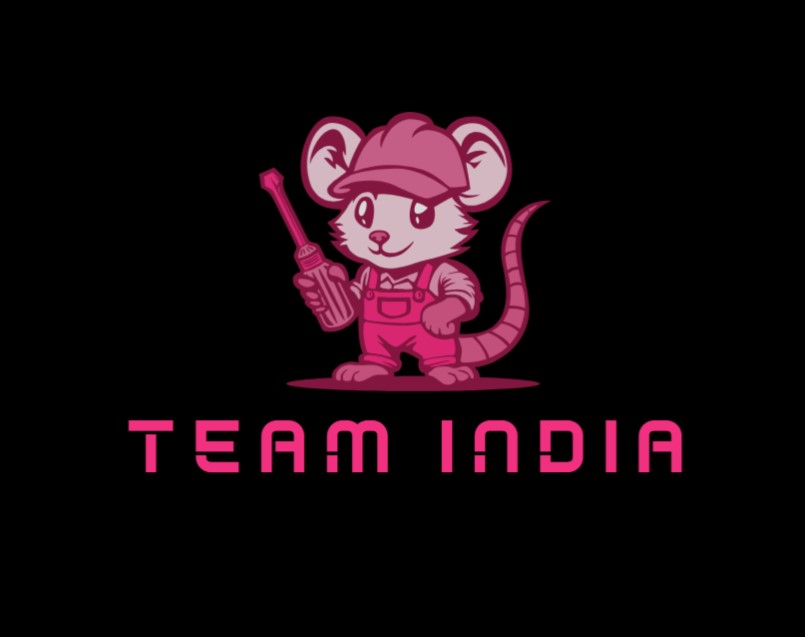Equality, Diversion and Inclusion
Huw’s EDI
Equality, Diversity, and Inclusion (EDI) have played a significant role in shaping both my individual contribution and the overall dynamics within team India. One of the key challenges I experienced was learning how to navigate and respect different communication styles, cultural perspectives, and working methods. Initially, this diversity sometimes led to misunderstandings or slower decision-making, especially when team members had differing expectations or ways of approaching problems. However, over time, I came to appreciate the immense value that diverse perspectives bring to collaborative work. Embracing EDI has enhanced our team’s creativity, as we began to generate more innovative solutions by drawing on a wide range of experiences and viewpoints. Personally, I found that adopting a more inclusive mindset helped me become a better listener and more empathetic teammate. I learned to be more self-aware and adaptable, which has strengthened my leadership and collaboration skills.
Within the team, the benefits of EDI were clear. A more open, respectful, and engaging environment led to stronger mutual support. Everyone felt more comfortable contributing their ideas, which led to better discussions and better problem-solving. The Faculty of Science and Engineering’s commitment to promoting EDI, along with the guidance provided by the IET’s EDI strategy, reinforced the importance of creating inclusive spaces where every team member can thrive. Going forward, I intend to continue applying inclusive practices in my engineering work, ensuring that I remain aware of the responsibilities we have as future engineers. Not just to build effective systems, but to support and empower diverse communities through ethical and inclusive design.
Bernice’s EDI
Equality, Diversity and Inclusion (EDI) promote a supportive working environment within our team. I worked with people coming from different places, with different personalities, and different genders, which was challenging to cooperate with. However, the diversity of the team provides various perspectives for the tasks, which helps us to brainstorm and intermingle ideas. The inclusiveness motivated us to engage in this project, leading to the team being more productive and having better decision-making, which improved our performance.
Additionally, equality is enormously beneficial in allowing each team member to fully engage and have opportunities to contribute to the project. I personally think that respect and fairness when discussing ideas and assigning tasks in the team introduce a more stable workforce. For example, English is my second language, and sometimes I may not express my words clearly, so my teammates would communicate with me patiently, as well as give me opportunities to contribute to different tasks. This helped us to work more effectively together. Adhering to EDI is also a vital element in the engineering society, bringing positive impacts to the technology community.
Jarred’s EDI
Working on the micromouse as part of Team India really helped me understand the value of equality, diversity, and inclusion EDI in a practical setting. The four of us each brought a different set of skills to the table, some of us were better with coding, others with hardware, and some were good when it came to organizing and planning the whole process. It became clear early on that we needed to listen to each other and share responsibilities fairly if we wanted to succeed.
EDI played a big role in how we functioned as a team. We made it a point to make sure everyone’s ideas were heard, even if they weren’t fully developed. That open and respectful environment allowed us to be more creative and supportive of each other. It also helped reduce pressure since we knew we could rely on each other without judgment. Our open approaches often led to better problem solving, especially when we hit roadblocks or had to make new choices.
Personally, I found that being part of a cooperative team helped boost my own confidence and encouraged me to contribute more. Instead of worrying about making mistakes, I focused on learning and improving. Overall EDI made our group more united and effective, and I believe it played a huge role in our micromouse. It’s something I’ll definitely carry with me into future teamwork and engineering work.
Ben’s EDI
Equality, Diversity, and Inclusion (EDI) had a meaningful impact on both my role and the overall success of our team. At times, working with teammates from different backgrounds and with different communication styles was challenging and it required patience, adaptability, and a willingness to listen. But those differences also became one of our greatest strengths, by sharing ideas openly and making space for everyone’s input, we gained a bigger range of perspectives that led to more creative problem solving.
For me personally, EDI helped build confidence. Being part of a respectful and fair team meant I felt comfortable taking initiative and contributing in areas of the project, without fear of judgment. We learned to divide tasks based on strengths and to support each other when someone faced difficulties, which made our teamwork much more effective.
Overall, embracing EDI didn’t just improve how we worked together, it reminded me that good engineering is about more than just technical skills, it’s also about building systems and teams where everyone can work well together
